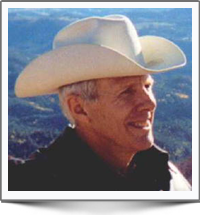
I began to read Mr. Horvat’s treatise expecting to find just another conservative book, this one from a Roman Catholic perspective. Return to Order is all of that, but it is much, much more.
Mr. Horvat’s central thesis is that the current American economic and moral crisis is caused by “frenetic intemperance,” an obsessive desire to satisfy our needs by ever-increasing material consumption. This leads to mass production of standardized goods that are devoid of personal differentiation and that shape consumer demand so that people want only what is produced but lose interest in the sublime which alone can bring true happiness, well-being, and satisfaction.
Mr. Horvat presents an enlightened perspective on the Middle Ages. Far from a “Dark Age” ruled by Church dogma and ignorant superstition, the Middle Ages were a period of incubation which gave birth to modern concepts such as government by consent of the governed, human rights, decentralized government (subsidiarity, to use the Roman Catholic term), the university, true science, the organic Christian community, and dedication to the common good. People worked for profit, but they valued other things more than money, and the craftsman took pride in his work, seeing his work as creating sublime beauty that imparts a foretaste of the Divine.
In the face of America’s imminent crisis, Mr. Horvat calls for a return to these ideals: examining and eliminating frenetic intemperance from our lives, adopting a lifestyle of reflection and introspection, engaging and combating the frenetic culture, and sacrificing for the common good, the family, the community, and the Church.
As a traditional Roman Catholic, Mr. Horvat appears to hold the Thomist concept that the Fall marred the imagio dei but did not utterly destroy it, and that grace does not obliterate nature but rather perfects nature. Lutherans and Calvinists are more likely to embrace the Augustinian view that the Fall obliterated the image of God and that man is therefore totally depraved apart from the grace of God. Accordingly, Protestants might be more skeptical than Thomists about man’s ability to pursue virtue, set aside self-interest, and work for the common good. Protestants might therefore see more merit in Adam Smith’s view of the “Invisible Hand” by which economic laws work so that each individual, while advancing his own selfish interest, ultimately benefits the entire community. But the Protestant concept of civil righteousness (natural grace for Lutherans, common grace for Calvinists) may provide a common ground for Protestants and Catholics to advance the common good.
[like url=https://www.facebook.com/ReturnToOrder.org]
Mr. Horvat’s treatise is clear (especially with his glossary), scholarly, thorough, well-documented and beautifully illustrated. Catholic conservatives will find in Return to Order an inspiring call to arms and an eloquent restatement of traditional Catholic political philosophy applied to the current crisis. Protestant conservatives and secular conservatives will find in Mr. Horvat’s book a balanced addition to their traditional references, a resource to broaden their perspective, and a stimulus to further thought.
What Does Saint Thomas Say About Immigration?
John Eidsmoe is a constitutional attorney and law professor, holding five degrees in law, theology, and political science. In twenty years of teaching at law schools, including the Thomas Goode Jones School of Law, Faulkner University, Montgomery, Alabama, the O. W. Coburn School of Law at Oral Roberts University, and Oak Brook College of Law and Government Policy, he has been awarded Outstanding Professor Award or Professor of the Year Award five times. A frequent lecturer and debater at colleges, universities, churches, and civics groups, he has authored more than a dozen books. He currently serves as Senior Counsel and Resident Scholar at the Foundation for Moral Law, Montgomery, Alabama. He is also a retired Lieutenant Colonel in the U.S. Air Force Reserve. He and his wife have been married over 40 years, have three children: David, Kirsten and Justin). He lives in rural Pike Road, Alabama.


